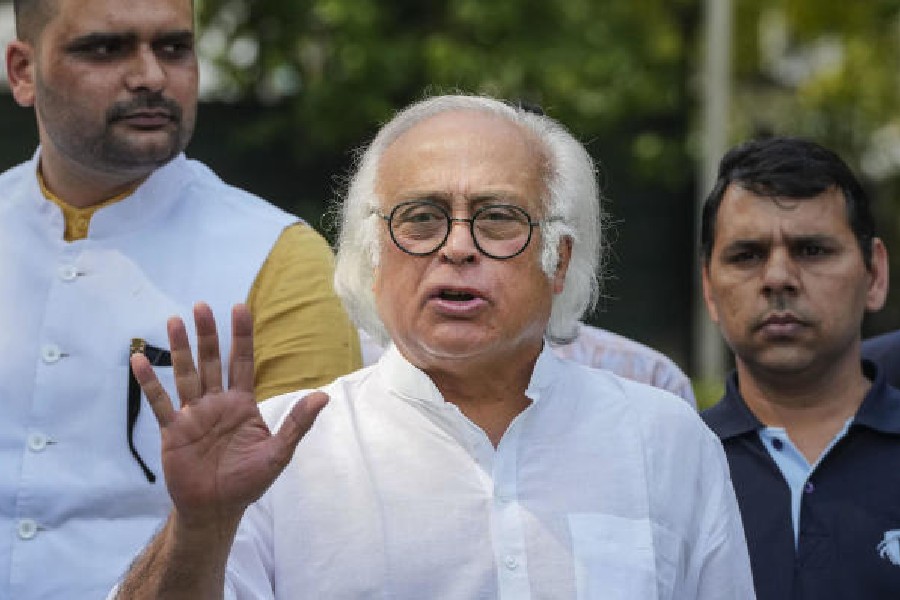The Congress on Friday said any move to bring down the Union government's stake in 12 public sector banks to less than 51 per cent would continue to be resisted forcefully both in Parliament and outside.
The party asserted that the mergers in the public sector banking industry in the last seven years have been broadly accepted only because the Union government's share was not to be reduced to below 51 per cent.
Congress general secretary in-charge communications Jairam Ramesh recalled that on this day 55 years ago, then prime minister Indira Gandhi had moved decisively to nationalise 14 banks and opened a whole new chapter in India's economic history.
"I have described the background to this momentous event based on archival material in my 'Intertwined Lives: PN Haksar and Indira Gandhi'. DN Ghosh who played a key role along with Haksar has also left a detailed account of it in his very valuable memoir 'No Regrets'," he said.
IG Patel was the special secretary in the finance ministry then and he too has written about this tectonic policy shift in his 'Glimpses of Indian Economic Policy: An Insider's View', Ramesh said.
Bank nationalisation had profound impacts on lending for agriculture, rural development, and other priority sectors of the economy, the Congress leader said.
He asserted that public sector institutions have served the country well in times of global financial crisis.
They have built an impressive pool of managerial expertise, he added.
Over the past seven years, there have been mergers in the public sector banking industry, Ramesh pointed out "United Bank of India and Oriental Bank of Commerce have been merged with Punjab National Bank. Syndicate Bank has been made part of Canara Bank. Allahabad Bank merged with Indian Bank. Union Bank of India has absorbed Andhra Bank and Corporation Bank. Vijaya Bank and Dena Bank have been taken over by the Bank of Baroda. State Bank of Patiala, State Bank of Bikaner and Jaipur, State Bank of Mysore, State Bank of Travancore, State Bank of Hyderabad and Bharatiya Mahila Bank have been acquired by the State Bank of India," he said.
Ramesh said these mergers have presented their own challenges.
"Big is not always Better. But they were broadly accepted only because the Union Government's share in public sector banks was not to be reduced to below 51%," he said.
"Any move to dilute that position in the 12 public sector banks that function presently would continue to be resisted forcefully both in Parliament and outside," Ramesh asserted.
Incidentally, while bank nationalisation electrified the country in July 1969, it was initially attacked by some political parties like the Bharatiya Jan Sangh, he said.
But within five months the Jan Sangh was publicly demanding the nationalisation of foreign banks as well, Ramesh said.
Except for the headline, this story has not been edited by The Telegraph Online staff and has been published from a syndicated feed.











